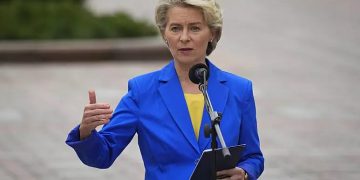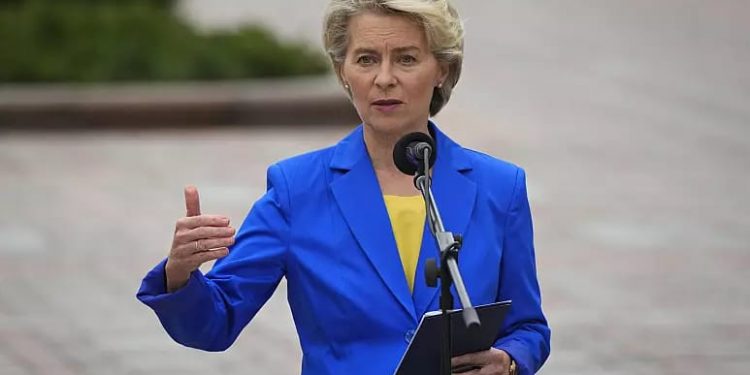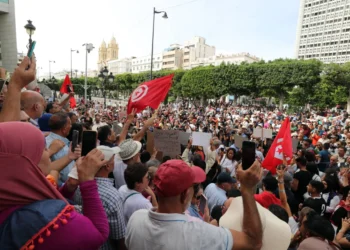By Enyichukwu Enemanna
There are indications that the European Union may announce a new round of sanction on Moscow following President Vladimir Putin’s threat to mobilise 300,000 reserved forces into the Russian army through a decree which will see a bolster of the Ukraine war.
Putin has also been accused of planning to organise a “sham referenda” in the country’s occupied territories as an excuse to claim Ukraine’s eastern and southern fronts as integral parts of Russia, relying on the 2014 annexation of Crimea.
Experts have said Putin’s decision to mobilise reserves forces to Ukraine is in response to the recent counteroffensive launched by Ukraine.
“President Putin is showing his weakness now because what you see is that he plans to mobilise personnel that is less trained, less experienced, less motivated. And he wants to start sham referendum on Ukrainian sovereign soil,” the European Commission President, Ursula von der Leyen told CNN during her visit to New York City, where she attended the opening session of the United Nations General Assembly.
“So, I think this calls for sanctions from our part, again.”
A spokesperson for von der Leyen has after the interview with CNN hared a statement explaining the new sanction will focus on “individuals and entities” that support the invasion of Ukraine and on “additional export controls on civilian technology as Russia moves to a full war economy.”
The Commission has not provided details to the planned sanction on Russia.
Since 24 February, the EU has imposed six rounds of sanctions against Russia, together with complementary measures to increase their efficiency and a long list of blacklisted high-profile people and companies.
The sanctions include an embargo on oil and coal imports, an export ban on cutting-edge technology, severe restrictions on road and maritime transport, the expulsion of key Russian banks from the SWIFT system and the suspension of state-owned media outlets accused of spreading disinformation and pro-war propaganda.
But despite the radical measures, the war in Ukraine continues. “The sanctions have been very successful,” von der Leyen said.
“If you look at the Russian economy, the industry is in tatters. We see that they have a really hard time to replenish their armed forces because the military complex has big difficulties, for example, with semiconductors [that] we’re not delivering anymore. The aerial float is basically grounded. So all these signs show that sanctions are really biting.”




































